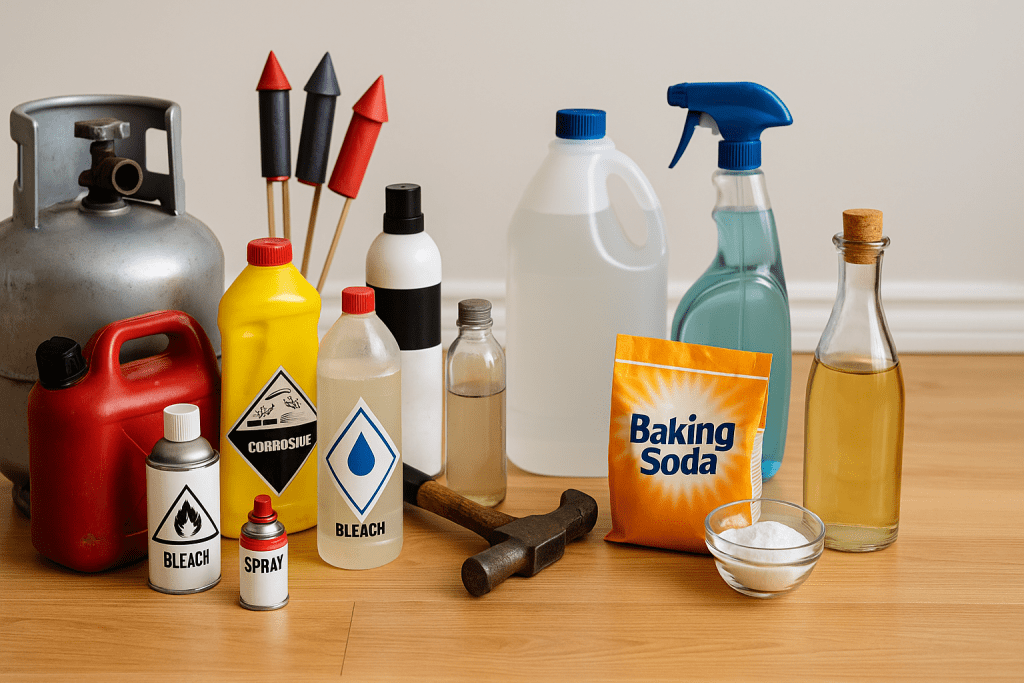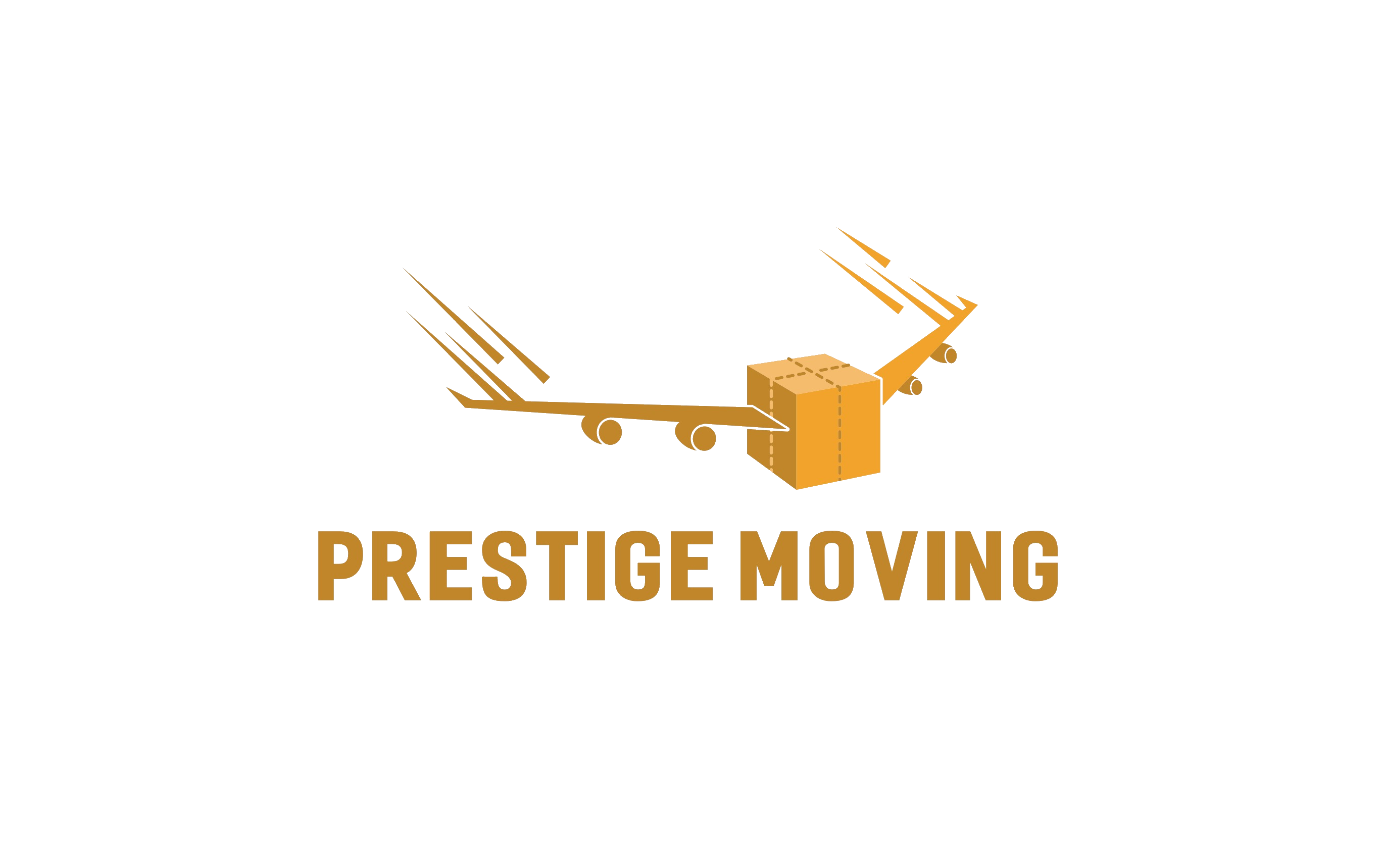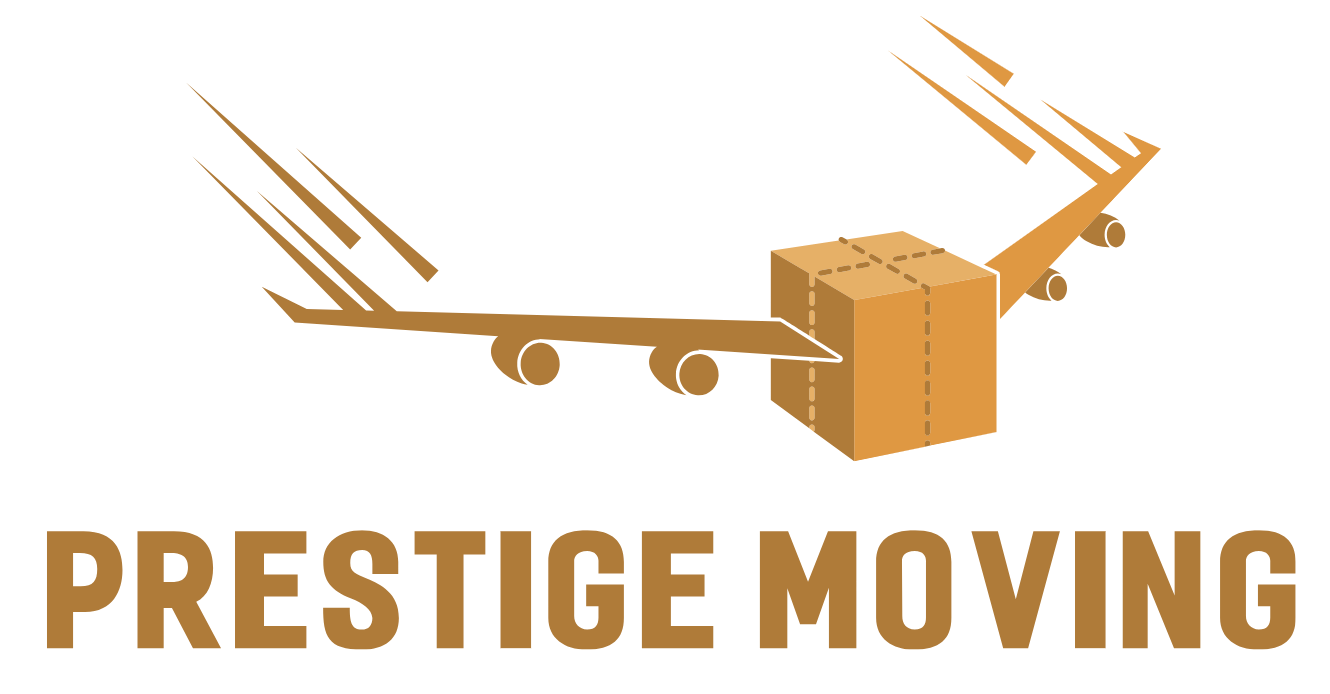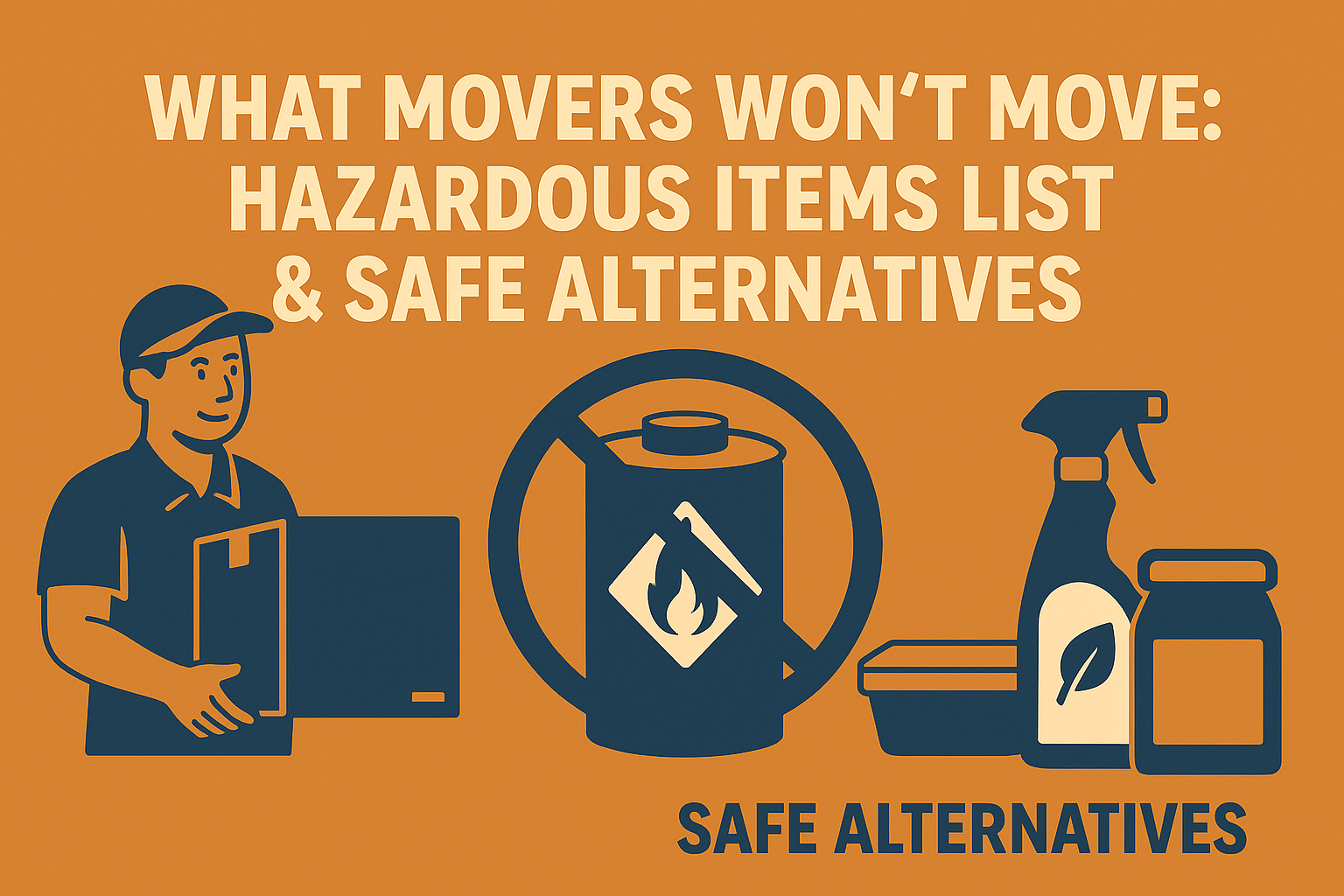Relocating to a new home or office involves more than just boxes, furniture, and trucks. One of the most overlooked aspects of moving is understanding what movers won’t move due to safety, legal, or liability reasons. Transporting hazardous materials poses risks not only to your belongings but also to the moving crew and vehicles. This guide outlines the hazardous items movers refuse, the reasons behind these restrictions, and the safe alternatives you can use to ensure a smooth, compliant, and stress-free move.
Why Movers Refuse Hazardous Items
Professional moving companies are bound by transportation safety regulations and internal policies that protect both employees and clients. Hazardous goods fall under categories that could ignite, explode, leak, or cause health hazards during transit.
The U.S. Department of Transportation and Transport Canada both classify dangerous goods into strict categories. According to Transport Canada, these include flammable, explosive, toxic, or corrosive items. Moving companies face heavy fines or revoked licenses if they attempt to transport these items illegally.
By refusing hazardous materials, movers safeguard:
- Crew safety: Avoiding accidents like fires, chemical burns, or poisoning.
- Vehicle protection: Preventing damage from leaks or explosions in confined trucks.
- Client liability: Shielding homeowners from fines and claims related to accidents.
The Hazardous Items Movers Won’t Move
1. Flammable Liquids and Fuels
Gasoline, lighter fluid, propane tanks, kerosene, and heating oils are strictly prohibited. Even a small spill can create a fire hazard. If you’re planning a long-distance move, this is especially critical. Dispose of fuel or transport it in your own vehicle if permitted.
2. Paints, Solvents, and Varnishes
Paint cans, paint thinners, wood stains, and varnishes fall under hazardous materials. They are combustible, can leak easily, and often require climate-controlled storage. If you’re moving into a custom-built home, consider buying new paint locally rather than transporting old cans.
3. Aerosols and Compressed Gases
Spray paint, hair spray, deodorant, and cleaning aerosols can explode under heat and pressure. Propane cylinders for grills or heaters are also on the restricted list.
4. Cleaning Chemicals and Bleach
Chlorine bleach, ammonia, drain cleaners, and other household chemicals can corrode containers and mix dangerously with other substances. Movers strongly advise against packing them.
5. Fireworks and Explosives
Even sparklers or small firecrackers are not permitted. They are highly unstable during transport.
6. Fertilizers, Pesticides, and Weed Killers
Garden products like pesticides, herbicides, fertilizers, and insecticides contain hazardous chemicals. For homeowners in Ottawa relocating with gardens, it’s safer to purchase fresh supplies after moving.
7. Weapons and Ammunition
Firearms and ammunition fall under strict legal regulations. Movers won’t handle them. Instead, check local gun transport laws or secure specialized firearm transportation services.
8. Perishable Foods
While not traditionally “hazardous,” movers avoid transporting perishable items like fresh produce, frozen foods, and dairy. These can spoil during transit, attract pests, and create unpleasant odors.
9. Plants and Soil
Long-distance movers may refuse to transport plants due to agricultural restrictions. Certain provinces and states prohibit moving soil that could carry pests or diseases.

Safe Alternatives to Hazardous Items
Instead of risking fines or damaged goods, here are safe and smart alternatives:
Dispose or Donate Responsibly
Check local recycling depots or hazardous waste facilities. For example, the City of Ottawa’s Hazardous Waste Program accepts many banned items like batteries, paints, and propane tanks.
Transport in Personal Vehicle
Small quantities of cleaning products, aerosols, or paint can sometimes be transported safely in your own car, provided they’re sealed and cushioned. Always check local regulations.
Buy New After the Move
Inexpensive, bulky, or risky items (like fertilizers, charcoal, or lighter fluid) are better purchased once you arrive at your new home. This is often cheaper than attempting to move them.
Use Eco-Friendly Alternatives
Switch to eco-safe products before your move. For example, vinegar-based cleaners are safer and movers may allow them. Prestige Moving even offers advice on eco-friendly moving solutions for environmentally conscious relocations.
Specialty Items That Require Extra Care
Some items aren’t outright banned but require special handling services:
- Pianos and antiques → Trust professional movers with expertise in antique furniture moving or piano moving.
- Military equipment → Specialized services exist for military moves.
- Senior relocations → Movers trained in senior moving services can help manage personal items with dignity and safety.
Preparing for a Smooth and Safe Move
1. Create a Hazardous Item Inventory
Before packing, walk through your home and list any restricted items. This prevents last-minute surprises on moving day.
2. Communicate With Your Movers
Discuss questionable items in advance. Professional Ottawa movers are transparent about what they can and cannot move.
3. Secure Proper Packing Supplies
For safe items, invest in durable boxes, moving blankets, and specialized moving supplies.
4. Explore Storage Options
If you’re not ready to dispose of certain items, consider climate-controlled storage solutions.
5. Use Professional Packing Services
Movers can provide packing services that ensure non-hazardous items are secured properly for long-distance or local moves.
Key Takeaways
- Movers won’t transport hazardous goods such as flammable liquids, chemicals, explosives, or perishable food.
- Safe alternatives include personal transportation, responsible disposal, or eco-friendly substitutes.
- Specialty services exist for delicate items like antiques, pianos, and military equipment.
- Clear communication and planning ensure compliance, safety, and a stress-free relocation.
For complete guidance, Prestige Moving offers resources on how to save money on moving in Ottawa and comprehensive relocation services.
Conclusion
Understanding what movers won’t move is essential for anyone preparing for relocation. By planning ahead, disposing of hazardous items properly, and choosing safe alternatives, you can avoid costly setbacks and ensure a smooth moving experience. Whether you’re moving across Ottawa or across Canada, compliance and safety should be top priorities.
For expert assistance, tailored moving solutions, and reliable service, reach out to Prestige Moving’s contact team.


